Donovan’s Reef (1963)
“Here we are, the three of us, on one of the most beautiful islands on Earth.”
|
Synopsis: |
|
Genres, Themes, Actors, and Directors:
Review: … “the dark floozy [Dorothy Lamour] gets to marry her hunk instead of dying off in the last reel”: … “and the Clementine Carter character [Allen] stops being such a priss and gets down to basic chemistry with the hero.” Unfortunately, there’s also plenty of cultural stereotyping, with the worst aimed at local Asians. Meanwhile, Ford once again shows his fascination with “half breed” children and the challenges they encounter — though in this case the kids’ royal lineage ultimately uplifts them far beyond the insults they endure. Interestingly, this is also a “Christmas story”, complete with singing carols, a moving Nativity sermon, a homecoming, and a tree. Indeed, Donovan’s Reef could truly be considered a “kitchen sink” Ford film, given how many of his favorite tropes are thrown in and baked into a fantastical concoction: a “stern” but beautiful (and conveniently wealthy) woman is tamed (including receiving a spanking); guy friends get to continue their playful barroom brawling without serious injury; racial tensions dissipate (though not without leaving plenty of individuals behind to be ridiculed); a generation of fatherly neglect melts away; kids are charmingly adorable; an understanding female partner is waiting loyally for even the most juvenile of men; and beauty, singing, and tropical dancing abound. Welcome to Ford’s version of Paradise. Note: Cesar Romero’s role as a local marquis hoping to snag Allen is pretty much wasted. Notable Performances, Qualities, and Moments: Must See? Links: |
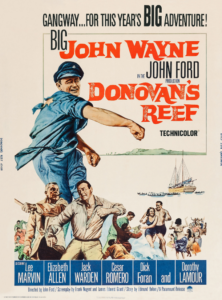
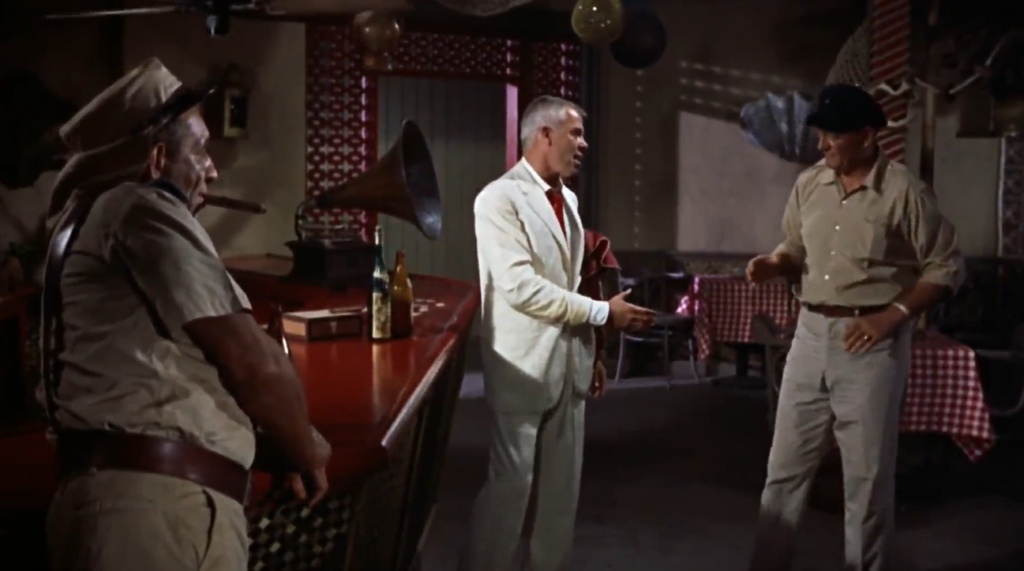
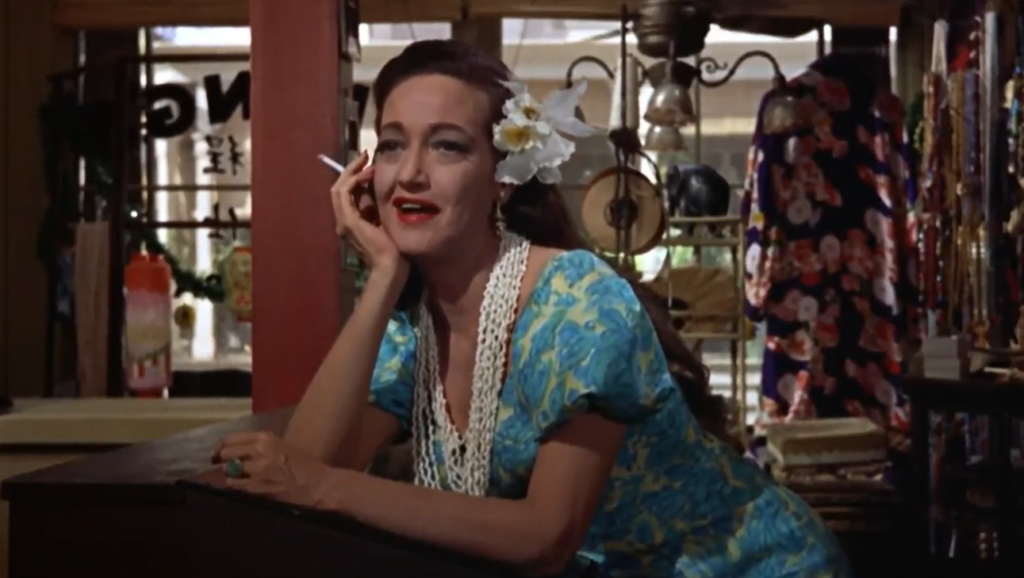
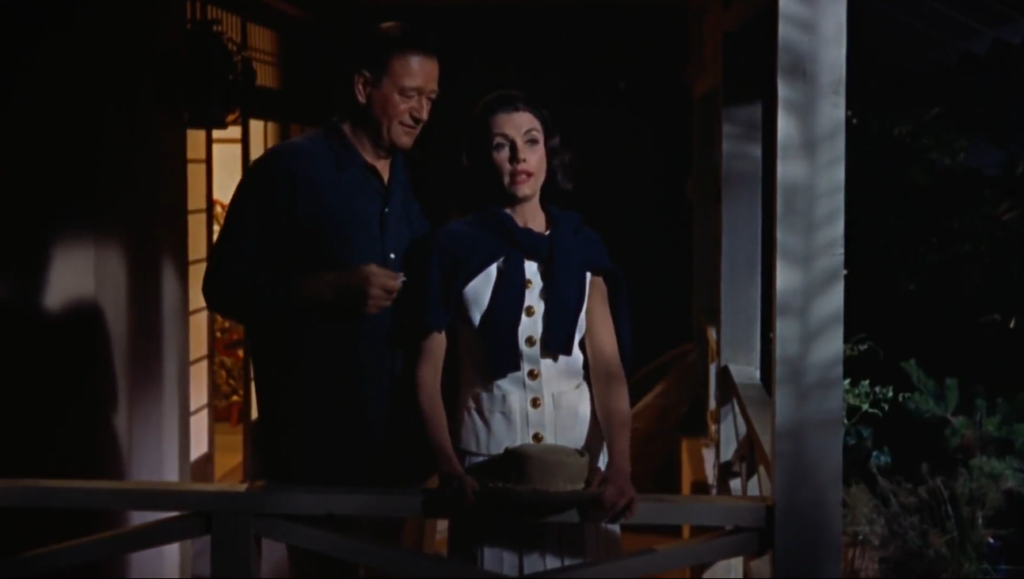
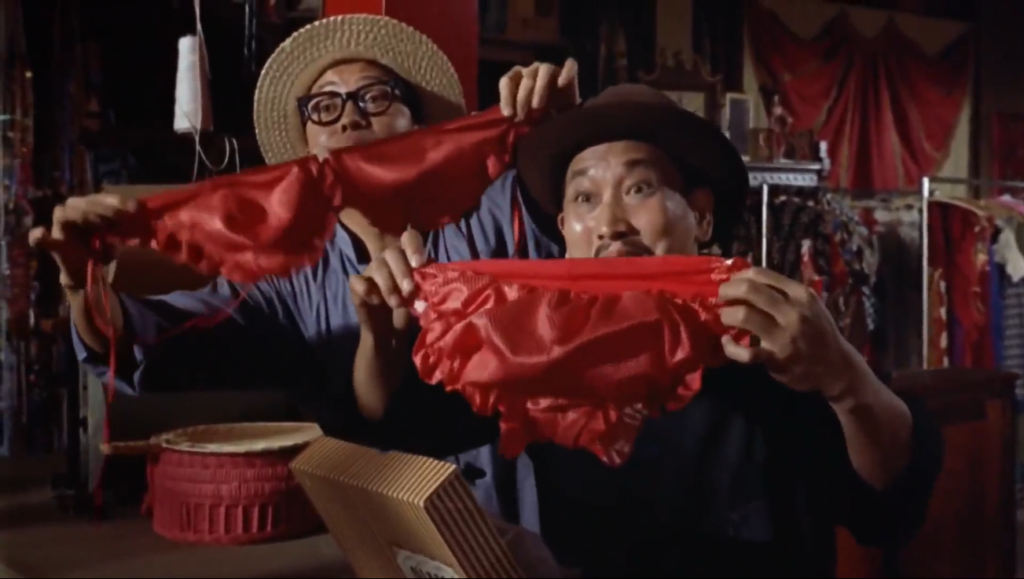
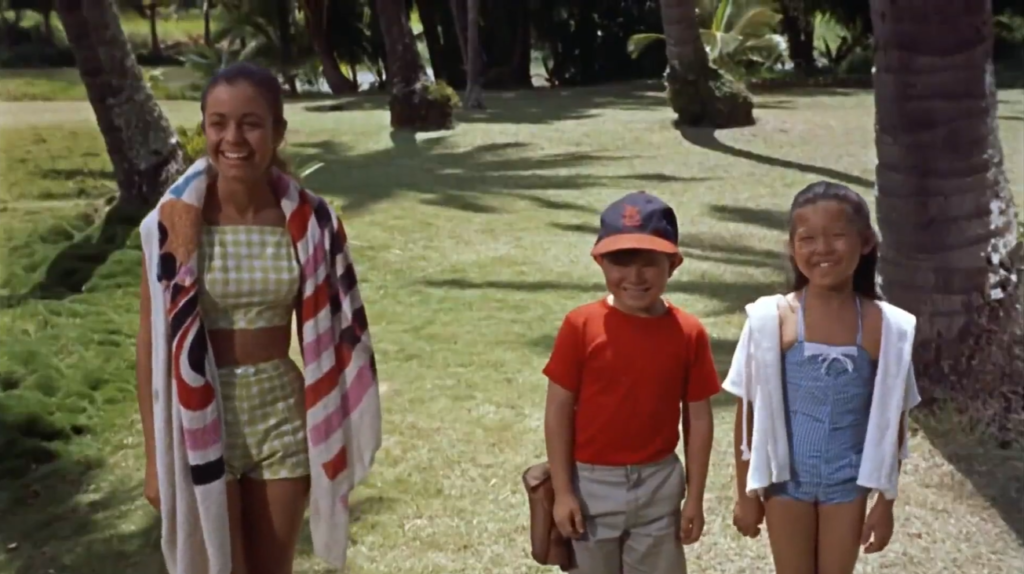

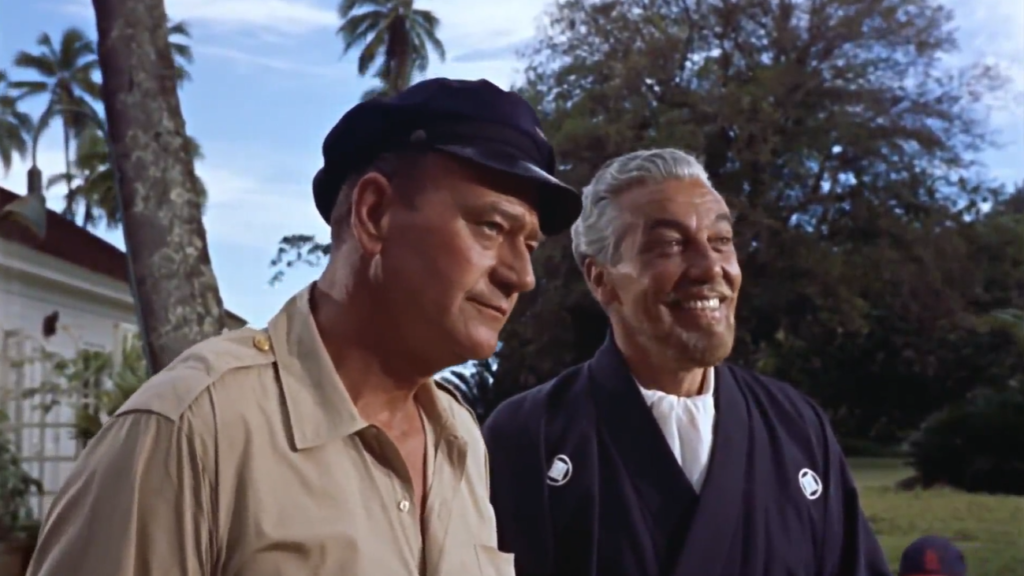


One thought on “Donovan’s Reef (1963)”
Rewatch 3/23/21.
Not must-see. Even Ford completists might find this largely tepid.
I saw this when I was a kid. Seeing it again hasn’t improved it. It’s a rather inconsequential Ford film. It looks like it was made in order to give the entire cast and crew a making-a-movie vacation in an exotic place.
The few storm sequences are nicely handled by the director – but he also often over-directs here and often allows actors to give forced performances. (The script doesn’t help in that regard; it’s largely shallow – the Asian characters are largely badly drawn – and it makes actors overcompensate.)
Some of this is familiar Ford territory; as such, Allen steps in in the Maureen O’Hara role. But what is Lamour doing here? Her role is largely pointless and it seems she was given a role as a favor for some reason.
Surprisingly, Warden comes off best of the cast. In a small role, he pulls up believability and empathy.